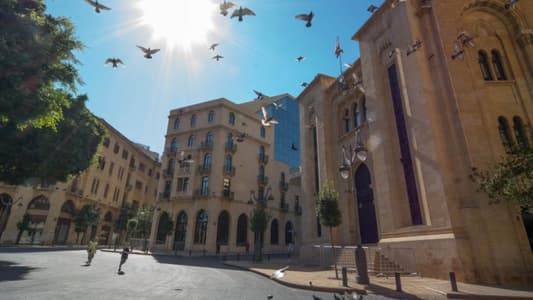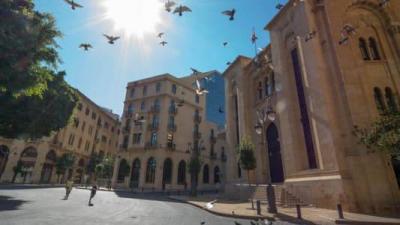After a week of waiting for a statement from the five-nation meeting in Paris that did not materialize, the diplomatic round initiated by the ambassadors of the five countries in Ain el-Tineh followed by a meeting at the governmental Serail emerged. The tone was firm regarding the necessity of completing constitutional obligations, particularly the election of the president and subsequently not delaying essential reforms as a fundamental conduit for international aid and support from the International Monetary Fund. Meanwhile, paralysis persisted with banks continuing to press for the approval of several legislations, especially the capital control law. However, the legislative session now hangs in the balance of potential postponement or even cancellation after MP Alain Aoun informed the Council Speaker's office that the Strong Lebanon Bloc would not participate in the session.
So, there will be no legislative session on Thursday, but this does not mean that the door is closed on the possibility of holding it, with hopes of the Free Patriotic Movement reversing its decision, especially after efforts to reduce the agenda items to just 10. While the legislative discussion is postponed to the meeting of the Council Bureau next Monday, President Saad Hariri had a series of meetings at his home in a politically silent manner, including with Future Movement cadres and later with Grand Mufti Sheikh Abdel Latif Drian. Hariri will suffice with commemorating the anniversary of the assassination of Prime Minister Rafik Hariri from his tomb today, which annually becomes a political and popular destination on the anniversary of that fateful day on March 14, 2005, when the man of moderation fell and Lebanon lost a significant political and national figure, with his death serving as the spark for Lebanon's second independence and the end of Syrian hegemony.
As the 18th anniversary of Prime Minister Hariri's assassination approaches, Lebanon stands at a crossroads of which both paths are bitter; it is suspended between life and death, and it desperately needs figures like him to rescue the country from the hell into which it has plunged. Who would have predicted that the dream Lebanon, which Rafik Hariri salvaged from the rubble and revived politically on the international stage, would turn into a rogue state with no place among civilized nations?
Former Minister Rashid Derbas pointed out in an interview with Al-Anbaa electronic newspaper what he termed a peculiar paradox when we hear some say that the country's descent into this dangerous direction was due to the policies implemented over the past thirty years, trying to exonerate themselves and blame Hariri for what happened, even though the period Hariri spent as prime minister was only eight years from 1992 to 2000. Despite this, only what Hariri built remains in Lebanon, from the airport to the sports city, the Lebanese University, the governmental Serail, infrastructure, highways, and more. Derbas stated, “After that, he left power; what did they do with public facilities? Electricity that used to be 24/7 in Beirut and 20 in other areas — where is it today? And what has happened to the telecommunications sector that they considered Lebanon's oil?” He added, “It has been 14 years since Hariri’s martyrdom; we lived more than half of that in presidential and governmental vacancy and unwarranted paralysis in state management, which has turned into a fiefdom. If Hariri were alive, would he have accepted this? And above all, they want to hold him responsible for what is happening today due to their mismanagement and lack of experience in leading the country.”
For his part, former MP Faris Saeed recalled in a call with Al-Anbaa electronic newspaper that President Hariri's assassination represented the martyrdom of an Arab Lebanese figure who united Christians and Muslims, marking an important event in a new phase that led to the departure of the Syrian army. Saeed said, “In the history of Lebanon, we have not seen the martyrdom of a national figure who contributed to Lebanon as much as Hariri did; his martyrdom is a loss for all Lebanese of all sects and denominations.” He remembered the comrades who turned this martyrdom into a national initiative, recalling that Walid Jumblatt and Saad Hariri were at the forefront of the independence uprising, and from their position alongside the leaders of the Cedar Revolution, they hoped that this great event would transform into a uniting national state. The past 18 years have brought much change to Lebanon, the latest of which was catastrophic on all levels, showing how much Lebanon needs statesmen of Rafik Hariri's caliber who always operate based on the principle of Lebanon first.




